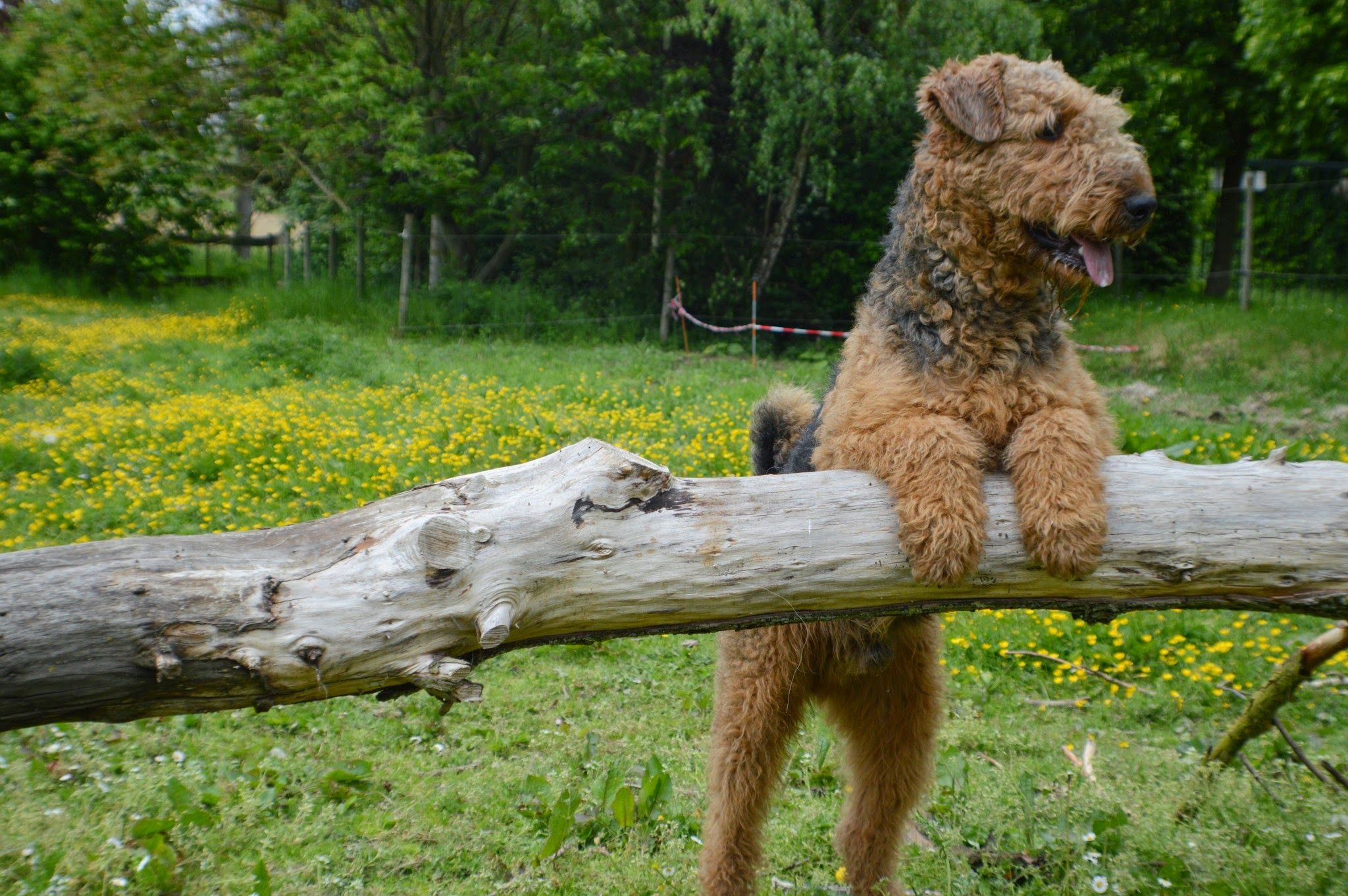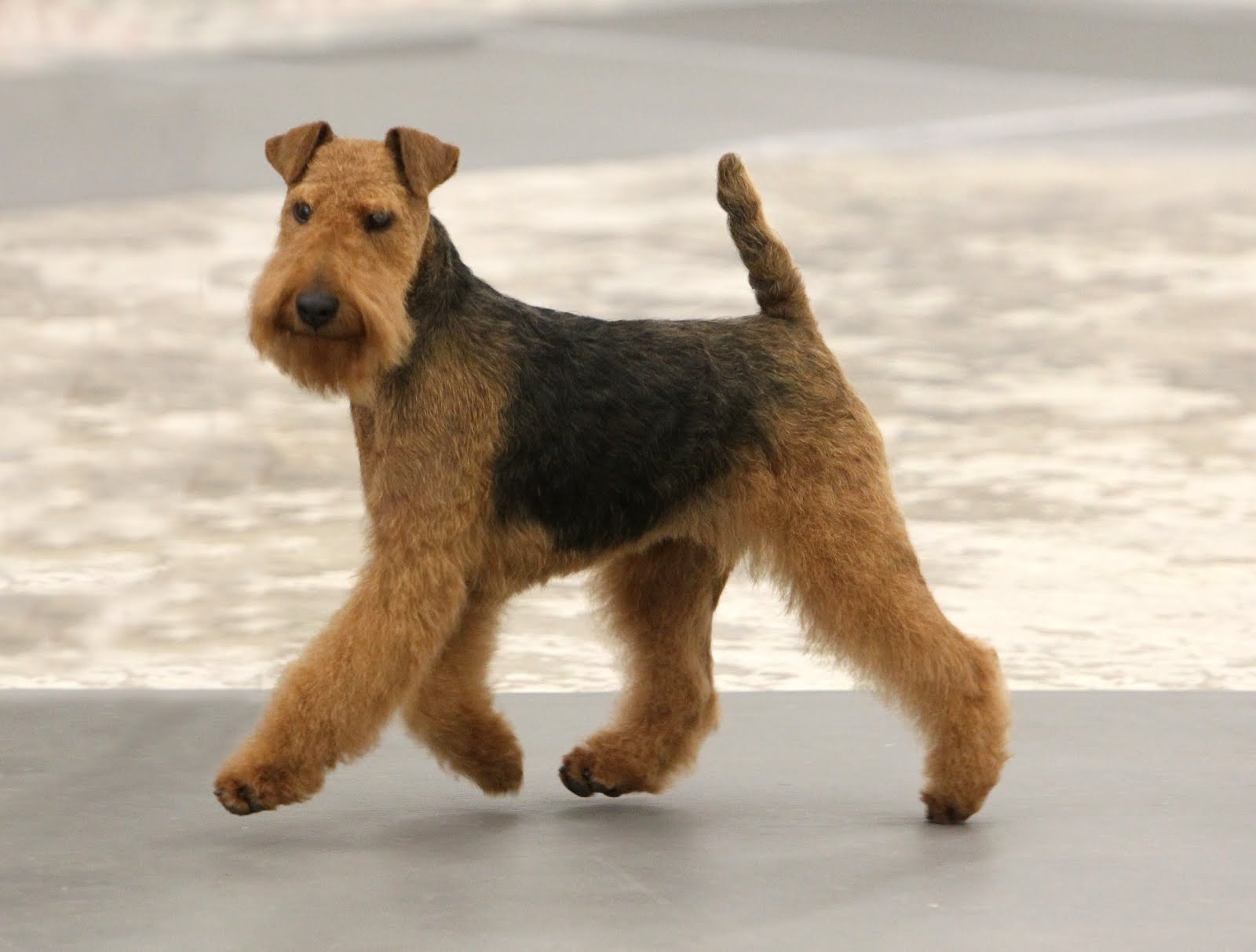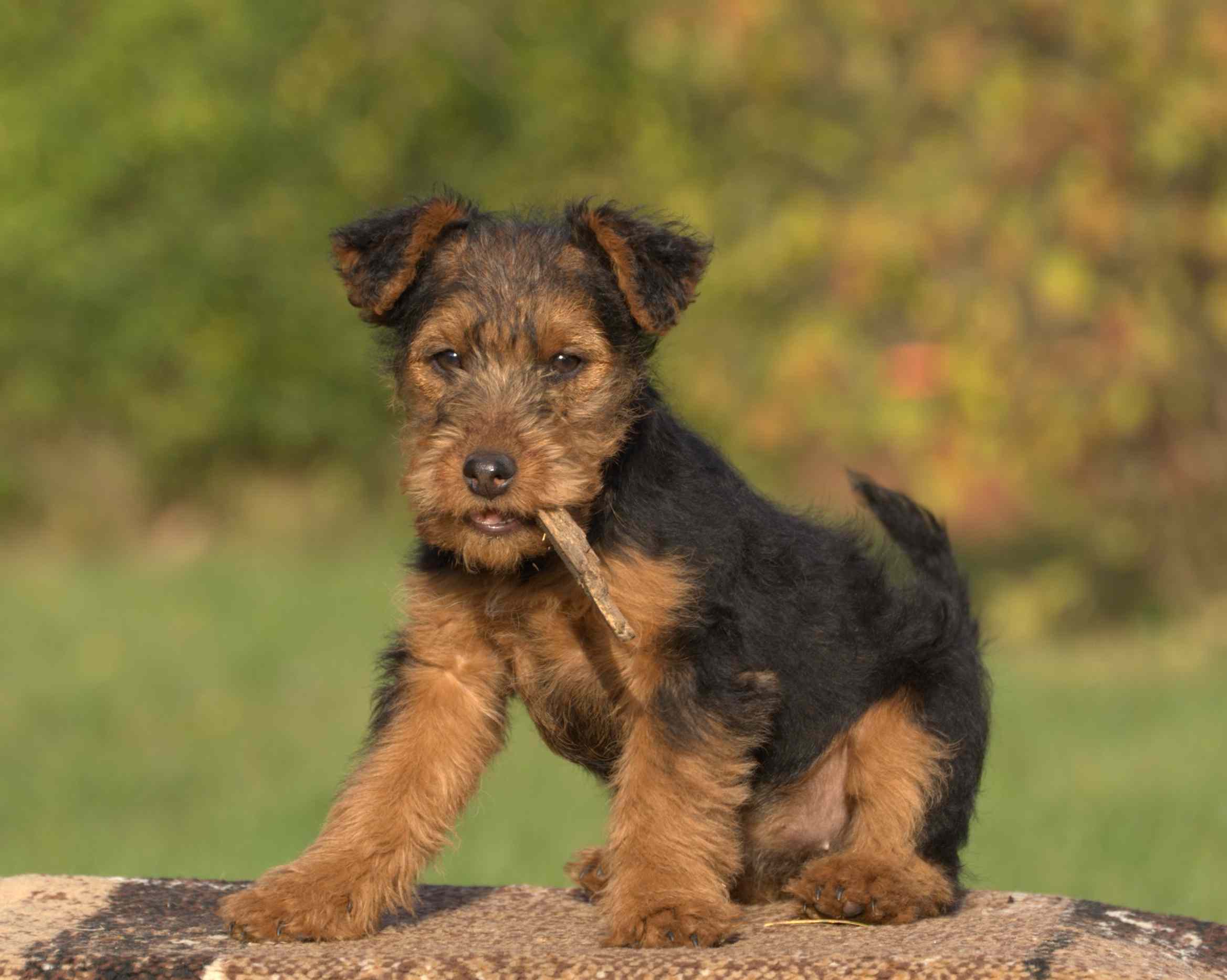
The Welsh Terrier is one of the oldest terrier breeds, originating in Wales and tracing its roots back to at least the 13th century. Initially known as the Black-and-Tan Wire Haired Terrier, it was bred to hunt foxes, badgers, and otters in the rugged countryside of Cymru (Wales).
By the late 18th and 19th centuries, the Welsh Terrier had become a distinct breed. Its gritty nature, combined with agility and a waterproof coat, made it invaluable to hunters. The breed was refined in the Cynon Valley and surrounding regions and shares ancestry with breeds like the Old English Black and Tan Terrier.
It gained The Kennel Club (UK) recognition in 1886, making it one of the first recognized terrier breeds. The American Kennel Club followed suit in 1888.
Though never as ubiquitous as breeds like the Airedale or Fox Terrier, the Welsh Terrier enjoys a loyal following for:
• Its bold yet affectionate temperament
• Distinctive appearance and low-shedding coat
• Adaptability as both a working dog and family companion
The breed has been owned by notable figures such as President John F. Kennedy, further elevating its profile.
The Welsh Terrier is compact, sturdy, and athletic, exuding classic terrier charm.
• Height: 15 inches (38 cm)
• Weight: 20–22 pounds (9–10 kg)
• Build: Squarely proportioned, robust yet graceful
• Coat: Dense, hard, wiry, with a soft undercoat
• Color: Always black and tan (rich tan on legs, head, underbelly; black saddle)
• Head: Rectangular, with a strong, straight muzzle
• Ears: V-shaped, folded forward, medium-sized
• Eyes: Small, dark, and full of keen terrier expression
• Tail: Set high, carried erect (docked in some countries)
True to its terrier heritage, the Welsh Terrier is spirited, confident, and playful, yet steadier and less frenetic than some terrier cousins.
• Alert and intelligent: Quick to learn but independent-minded
• Playful and friendly: Good with children and family; enjoys interactive games
• Confident and bold: Unafraid, making it a good watchdog
• Energetic: Needs regular exercise and stimulation
• Sociable: Generally gets along well with other dogs if socialized early

This breed is ideal for:
• Active individuals and families looking for a sturdy, adventurous companion
• Owners who enjoy hiking, agility, and interactive play
• Those wanting a low-shedding, hypoallergenic coat (relatively low dander)
It may not suit:
• Sedentary owners or those unable to commit to daily activity
• Households with small prey animals (due to high prey drive)
• Inexperienced dog owners unwilling to offer consistent training
Welsh Terriers thrive on engagement, exercise, and clear leadership.
• Exercise: Moderate to high; brisk walks, play sessions, agility
• Training: Firm, positive reinforcement; terriers can be stubborn
• Grooming: Regular brushing and hand-stripping (every few months) to maintain coat texture
• Living Environment: Adaptable to apartments or houses with fenced yards; terrier-proof fences advised
• Feeding: Balanced diet suited for small to medium active breeds
Welsh Terriers are generally hardy and long-lived (12–15 years). Some health considerations include:
• Allergies (skin sensitivities)
• Glaucoma
• Hypothyroidism
• Hip dysplasia (less common but worth screening)
Routine veterinary care and responsible breeding minimize risks.

• Airedale Terrier: Larger, stronger, more demanding exercise-wise
• Lakeland Terrier: Smaller, slightly more delicate build, more “fiery” personality
• Wire Fox Terrier: Similar appearance but generally higher energy and drive
If you’re seeking a bold, playful, yet manageable-sized terrier with fewer grooming hassles and a strong attachment to family, the Welsh Terrier could be a perfect fit.
Connect with reputable breeders via national breed clubs such as the Welsh Terrier Club of America. United Pet Club offers microchipping, activity monitoring, and pet passports—useful for adventurous owners traveling with their terrier.